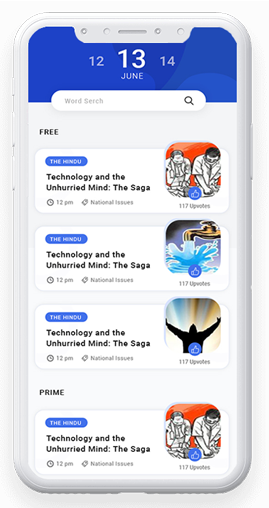Introduction
In the 21st century, social media has transformed from a mere tool of communication into a global ecosystem that influences politics, culture, economy, and even personal identities. Platforms like Facebook, Instagram, Twitter (X), YouTube, TikTok, and LinkedIn have become the virtual arenas where billions of people interact, share ideas, and consume information. With over 4.8 billion social media users worldwide, its reach is undeniable. Yet, this widespread influence has sparked intense debates: Is social media a blessing that connects humanity, or is it a disruptive force that divides societies and manipulates minds? This essay examines the rise, significance, advantages, and challenges of social media, as well as its evolving role in shaping the future.
________________________________________
The Rise of Social Media
The roots of social media can be traced to the early 2000s with platforms like Orkut, MySpace, and Friendster. These initial platforms created the concept of virtual communities. The launch of Facebook in 2004 marked a turning point, expanding beyond friend networks to become a global platform. Twitter (2006), Instagram (2010), and TikTok (2016) further diversified the landscape. Unlike traditional media, which is one-directional, social media introduced interactivity—people became both consumers and creators of content. The smartphone revolution and cheap internet access further accelerated the growth, especially in developing nations like India, where platforms now play a central role in everyday life.
________________________________________
Advantages of Social Media
1. Connectivity Across Borders
Social media has eliminated geographical barriers, enabling people to connect globally. Families, friends, and professionals can interact in real time regardless of distance.
2. Platform for Free Expression
Individuals can voice opinions, challenge authority, and engage in debates. Movements like #MeToo and BlackLivesMatter gained global traction primarily through social media.
3. Business and Marketing Opportunities
Social media has revolutionized commerce. Small businesses can market products cheaply, while influencers and digital entrepreneurs create entire careers around platforms like Instagram and YouTube.
4. Information and Awareness
During crises—such as natural disasters, pandemics, or political unrest—social media spreads information faster than traditional news. For instance, updates during COVID-19 lockdowns reached millions instantly.
5. Education and Knowledge Sharing
Social media platforms host tutorials, webinars, and learning communities. YouTube and LinkedIn, in particular, have become invaluable for self-learning and career advancement.
6. Cultural Exchange
Music, art, literature, and lifestyles from different countries are shared instantly, fostering global cultural awareness and diversity.
________________________________________
Challenges of Social Media
1. Misinformation and Fake News
The speed of information sharing often leads to unchecked content. False rumors can spread rapidly, influencing elections, stock markets, and even communal harmony.
2. Mental Health Issues
Studies show a rise in anxiety, depression, and loneliness linked to excessive social media use. The ‘like’ culture fosters comparison, envy, and low self-esteem.
3. Privacy Concerns
Data misuse and surveillance scandals—such as the Cambridge Analytica case—have revealed how user information can be exploited for profit and political manipulation.
4. Cyberbullying and Online Harassment
Anonymity emboldens bullies. From hate comments to targeted trolling, online harassment has become a serious concern, particularly for women and minorities.
5. Addiction and Reduced Productivity
Algorithms designed to maximize engagement often lead to endless scrolling. This not only reduces productivity but also affects sleep patterns and social relationships.
6. Polarization and Echo Chambers
Social media often reinforces existing beliefs by showing users content similar to their views. This creates ideological bubbles and sharpens political and social divides.
________________________________________
The Role of Social Media in Politics and Society
In democratic societies, social media has emerged as a powerful political tool. Political campaigns increasingly rely on digital outreach to influence voters. In countries like India and the United States, leaders communicate directly with citizens through platforms like Twitter. However, the manipulation of social media by spreading propaganda or misinformation also poses a threat to democratic processes.
On a societal level, social media has amplified marginalized voices. Women, LGBTQ+ communities, and minorities find spaces to express themselves freely. Yet, the same platforms are also used to spread hate speech, extremist ideologies, and conspiracy theories, making regulation a complex challenge.
________________________________________
The Economics of Social Media
The digital economy has flourished with social media at its core. Influencer marketing is expected to grow into a multi-billion-dollar industry. Platforms generate revenue through targeted advertisements using sophisticated algorithms that analyze user behavior. This monetization, however, has sparked debates about consumer manipulation and exploitation of personal data.
________________________________________
Social Media and Youth
The younger generation is both the biggest beneficiary and victim of social media. While it provides learning opportunities, career prospects, and creative outlets, it also exposes them to cyberbullying, body image issues, and unrealistic lifestyle portrayals. For students, balancing social media with studies and real-life interactions has become increasingly difficult.
________________________________________
Future of Social Media
1. Artificial Intelligence and Virtual Reality
With the advent of AI-driven personalization and the rise of the Metaverse, social media is moving towards immersive experiences.
2. Stronger Regulations
Governments worldwide are framing stricter rules to curb fake news, data misuse, and harmful content. Balancing regulation with freedom of speech will remain a challenge.
3. Ethical Responsibility of Tech Companies
There is growing pressure on companies like Meta, Google, and TikTok to ensure transparency, protect user privacy, and minimize harmful content.
4. Shift to Decentralized Platforms
Web3-based decentralized social networks may reduce corporate control, giving users more ownership of data and content.
________________________________________
Conclusion
Social media is a double-edged sword: a powerful enabler of communication, innovation, and democracy, but also a dangerous platform for manipulation, polarization, and mental health issues. The key lies in responsible use, ethical corporate practices, and balanced regulation. For individuals, the challenge is to harness its benefits without falling prey to its addictive and harmful aspects. For societies, it is about creating digital literacy, fostering inclusivity, and ensuring that social media strengthens rather than weakens democratic and social values. Ultimately, social media reflects humanity itself—capable of extraordinary creativity and connection, but equally vulnerable to misuse and division. Its future will depend on how wisely we choose to use it.



